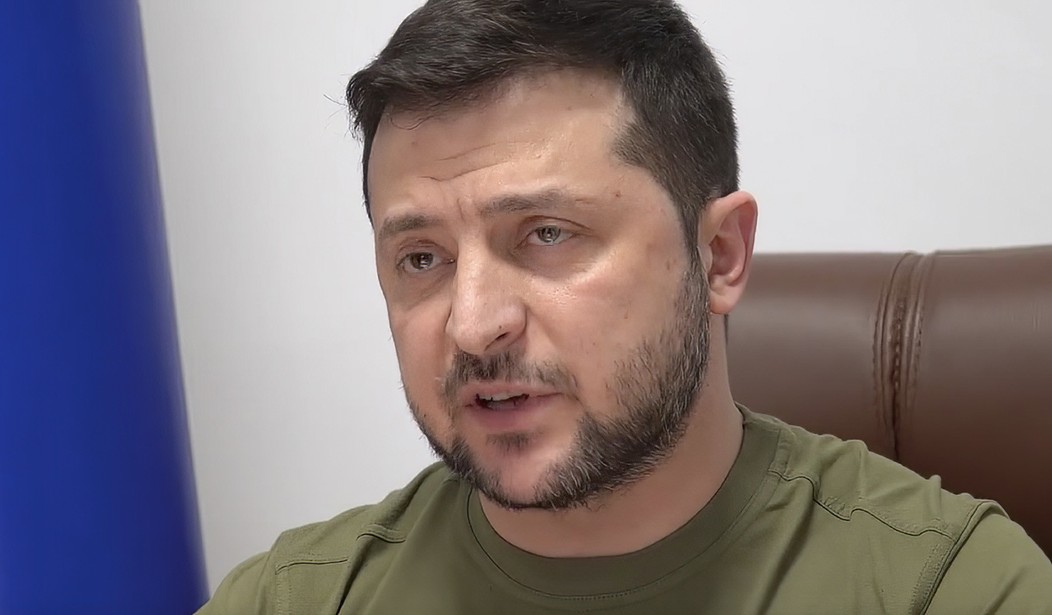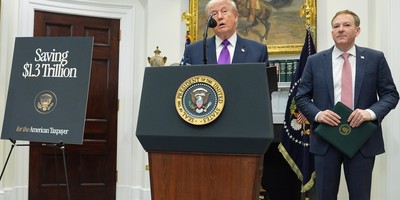Most Americans understandably favor the Ukrainian resistance against Russian President Vladimir Putin's naked 2022 aggression.
Yet for Ukraine to break the current deadlock -- our generation's Verdun with perhaps 600,000 combined casualties so far -- and "win" the war, it apparently must have the military wherewithal to hit targets inside Russia.
Such strategically logical attacks might nevertheless provoke a wounded and unpredictable Russia finally to carry out its boilerplate and ignore existential threats.
From the last 75 years of big-power rivalries, the operational "rules" of proxy wars are well known.
In Vietnam, Korea, and Afghanistan, Russia supplied America's enemies -- sometimes even sending Russian pilots into combat zones.
Thousands of Americans likely died due to our adversaries' use of Russian munitions and personnel.
Likewise, Russia lost 15,000 fatalities in its decade-long misadventure in Afghanistan. In part, Moscow's defeat may have been due to deadly American weapons, including sophisticated Stinger anti-aircraft missiles.
In the bloody decades of these big-power proxy wars, many were fought on or near the borders of Russia or China.
Yet none of these surrogate conflicts of the nuclear age ever led to hot wars between the U.S. and Russia or China.
But Ukraine risks now becoming a new -- and different -- proxy war altogether.
Never has the U.S. squared off against Russia or China in a conventional proxy war over either's respective historical borders (whether illegitimate or not).
Neither has Russia nor the U.S. itself ever provided weapons to a proxy belligerent that were used directly inside the respective homeland of either side. They understood superpowers react unpredictably to any third party who fuels direct conventional attacks on their homelands.
Nobly protecting both Ukraine and Taiwan understandably holds a potential risk of big-power escalation that even Vietnam, Korea, Afghanistan, and Iraq likely did not.
The U.S. rightly is very sensitive to intrusions of any rival considerable power near its own borders.
When the Soviets had supplied missiles aimed at the U.S. to its proxy communist Cuba, the Kennedy administration was willing to risk war against Moscow. Indeed, America went to DefCon 2, the second highest level of nuclear readiness.
If all the current 1916-style talk of going into Mexico -- ostensibly to stop the cartels from importing drugs over an inert border that kills 100,000 Americans a year -- were to be reified, would the U.S. warn Moscow not to supply Mexico or the cartels with weapons or advisors?
The U.S. 1917 declared war in part because of German interference in our territorial affairs.
A hacked telegram from German State Secretary for Foreign Affairs Arthur Zimmermann revealed Germany had promised a potential proxy, Mexico, some U.S. territory if it were to join the Central Powers to defeat the Allies. That provocation helped convince enraged Americans to enter World War I.
The 9/11 hit was followed by an immediate American invasion of Afghanistan on the grounds that the third-party Taliban helped terrorists strike our homeland.
Additionally, nowhere in the world has territory been more disputed than in Ukraine.
Seventy-eight years ago, Joseph Stalin's Russia formally annexed his previously stolen western regions of currently independent Ukraine. The lands were taken mainly from Poland and a few parts from Hungary, Romania, and the former Czechoslovakia.
Russia also seized and occupied Crimea in 2014. The peninsula had previously been Russian from 1783-1954.
Yet Crimea was only ceded by Soviet Russia to Soviet Ukraine in 1954 as a political ploy of then Soviet Prime Minister Nikita Khrushchev -- himself born near the Ukrainian border.
Khrushchev sought to ensure that a restive Ukraine stayed an integral part of a supposedly eternal Soviet Union by ceremonially including Crimea into one of its own Soviet state's sub-jurisdictions.
With the fall of the Soviet Union, the short-lived Russian-majority and independent Republic of Crimea (1992-95) was annexed by the newly independent Ukraine.
It then remained part of the Ukrainian nation for 19 years until the 2014 invasion.
Why Putin, for a third time, dared invade Ukraine is obfuscated by contemporary domestic politics.
He likely enacted his irredentist agenda of restoring the borders of the former Soviet Union in 2008, 2014, and 2021 because he gambled -- correctly -- that the Bush, Obama, and Biden administrations could not successfully oppose his serial annexations.
Equally forgotten were the policies of the Obama, Trump, and Biden administrations regarding the 2014 Russian annexation of the Donbas and Crimea. Prior to the February 24, 2022, Russian attack on Kyiv, none of the three had ever sought to force Russia to give up either the borderlands or the Crimea.
The Obama administration's disastrous 2009-2014 Russian "reset" appeasement policy, the 2015-16 Russian collusion hoax, and the humiliating American skedaddle from Kabul convinced Putin that America would not or could not oppose his 2022 invasion.
America should help Ukraine resist Russian aggression. But we should be mindful in doing so that the entire region is a historical Gordian Knot of poorly understood but ancient intertwined and competing threads -- one that may risk being cut by a Russian nuclear sword.
Victor Davis Hanson is a distinguished fellow of the Center for American Greatness. He is a classicist and historian at the Hoover Institution, Stanford University, and the author of "The Second World Wars: How the First Global Conflict Was Fought and Won" from Basic Books. You can reach him by e-mailing authorvdh@gmail.com.

























Join the conversation as a VIP Member